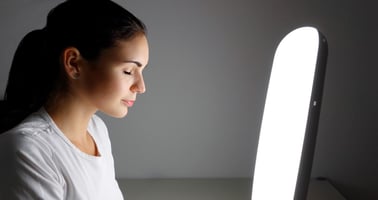Study Identifies Some Predictors of Bipolar Disorder in At-Risk Youth
 |
Participants with childhood anxiety disorders or sleep disorders were nearly twice as likely to develop mood disorder, according to Anne Duffy, M.D., a professor in the Department of Psychiatry at Queen’s University in Canada, and colleagues. Children with depressive or manic symptoms were 2.7 times more likely and 2.3 times more likely, respectively, to develop mood disorder.
The study findings “underscore the importance of taking into account both the family history and the developmental trajectory of emerging psychopathology to improve earlier diagnostic precision in young people manifesting clinically significant symptoms and syndromes,” Duffy and colleagues wrote.
The prospective study included 279 “high-risk” participants (aged 5 to 25 years) who had one parent diagnosed with bipolar disorder I or II, and 87 comparison participants with similar socioeconomic backgrounds from Ottawa schools. Participants were followed for an average of about seven years. All participants completed research assessments administered by a psychiatrist at baseline and about every year thereafter, including a semistructured interview following the Kiddie Schedule for Affective Disorders and Schizophrenia-Present and Lifetime Version (K-SADS-L) or the similar SADS-L.
The researchers observed bipolar spectrum disorders and psychotic spectrum disorders only in the high-risk offspring (25% and 11%, respectively) and not in the comparison group. There was no difference in the rate of bipolar disorder among participants based on whether their parent responded to lithium; however, psychotic disorders manifested almost exclusively among the offspring of lithium-nonresponsive parents (20% compared with 1%).
The researchers diagnosed major depressive disorder exclusively among the high-risk offspring (33% of high-risk group versus 5% of comparison group). A similar pattern emerged for sleep disorders (23% of high-risk group versus 1% of comparison group). Depressive episodes predominated during the early bipolar course.
The findings indicate the major role that anxiety and sleep disorders and major depression—especially with psychotic symptoms—may play in the development of bipolar disorder in young people with a familial risk. “Early clinical intervention and prevention efforts,” the researchers wrote, “should emphasize low-risk interventions addressing mood symptoms, anxiety and sleep disorders, and prevention of substance misuse.”
For related information, see the Psychiatric News article “Researchers Sum Up Current Knowledge of Bipolar Disorder, Call for More Study.”
(Image: iStock/Steve Debenport)






